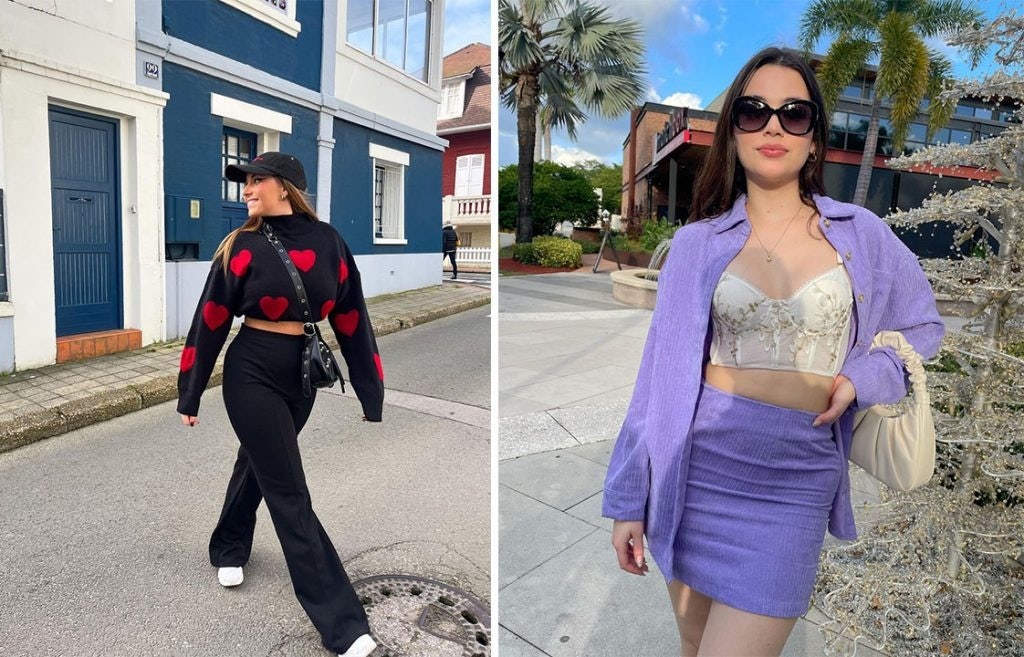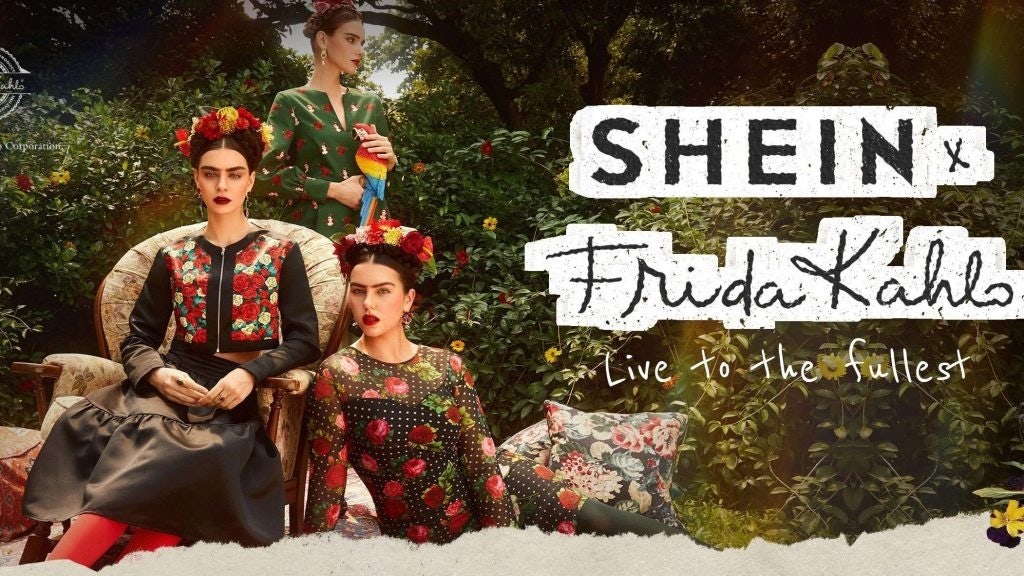Ultra-fast fashion Chinese company Shein has very little in common with the fundamentals of luxury fashion. Indeed, fast fashion is luxury’s antithesis; it’s fast, impulsive, cheap, ephemeral, and inferior quality. There are also the multitude of environmental concerns surrounding fast fashion’s impact on the environment and communities.
But Shein’s rapid success, which surprised fashion, is reshaping Gen Z consumer priorities and expectations, lessons other brands are well advised to take heed of. Moreover, it is successfully battling for Gen Z’s, and now Gen Alpha’s, disposable income.
Shein executives recently told investors that the company is targeting an annual revenue of 58.5 billion (401.31 billion RMB) by 2025, but denied recent reports of an IPO
.#
The target would mean Shein's annual revenue would exceed the current annual sales of retail giants H&M and Zara combined. The company expects the gross merchandise value on the platform to grow to 80.6 billion by 2025, up 174 percent from last year, and plans to achieve this by shifting its sales model, including selling more diverse and expensive fashion collections.
Many higher-end brand executives may believe that the "Shein effect" is specific to fast fashion, or that the business’ remarkable growth curve is unsustainable, which may turn out to be true to some extent. But what is evident is that Shein’s success has become a cultural component of Gen Z fashion consumerism. Luxury fashion executives need to understand how Shein, founded in 2008 by Chris Xu, is winning over younger generations.
Meteoric Rise#
With its dirt cheap drops and Gen Z consumer base, Shein in 2022 took the crown of most-Googled retailer in 113 markets, accelerating past Nike and Zara, according to a report by money.co.uk. The Singapore-headquartered retailer’s iOS shopping app ranked second globally as of end-January 2023, according to data agency Data.ai.
Shein’s sales increased 250 percent year-over-year in 2020 to 10 billion (68.4 billion RMB) and 60 percent year on year in 2021 to 16 billion (109.4 billion RMB), according to Bloomberg.
Its growth may be slowing, but the scale and acceleration of Shein’s global market presence outside of China is disrupting how Gen Z shops for fashion.
The Power Of Data#
Shein’s ability to harness data transformed the process of uncovering trends and translating them into new products — it tracks the popularity of products using real-time customer data and tunes production accordingly.
Turnaround from concept to finished product takes just days, which means Shein can introduce more than 6,000 products per day, and generate a sense of newness and novelty. Shein is more than an online fashion player; it’s partially an experimentation lab. This is certainly not a blueprint for luxury brands, but it underlines the huge market opportunity to mine quality data. And this can affect the bottom line. According to McKinsey & Co., fashion companies that have personalized customer e-commerce experiences have grown digital sales by between 30 and 50 percent.
Digital Denominator#
Shein stands out on how it recruits and activates thousands of micro-influencers or brand ambassadors who showcase their purchases on social media, whereas luxury brands tend to use celebrity or high-status influencers on social media as a source of inspiration.
These micro-influencers are actual customers, otherwise known as Key Opinion Consumers (KOC), who in their own manner, without celebrity glamor, share their passion for Shein within their social media network.

Shein also engages in celebrity partnerships, notably Khloé Kardashian (291 million followers on Instagram), who was a judge for the Shein X 100K Challenge design competition.
Control of the brand messaging is a priority for all luxury brands, but Gen-Z consumers are searching and demanding authenticity that drives engagement in the digital space. Cowen data reveals that over 50 percent of 18- to 24-year-olds in the US purchased from a brand they had recently discovered on Instagram or TikTok.
Awkward Exemplar#
Few luxury executives would publicly concede that their brands drew inspiration from the traditional fast fashion model. Yet, a closer examination reveals that some affordable luxury brands consider manufacturing in lower-cost locations as best practice. Even some higher-tier luxury brands have shifted production of lower-priced and quality items to increase efficiency.
Luxury executives are even less inclined to admit that they are competing, directly or indirectly, with companies like Shein. The truth can be unpalatable: Luxury brands are battling to win over the same generation of consumers, namely Gen Z and now Gen Alpha, albeit at very different price points. According to a report by Bain, the average Gen-Z shopper makes their first luxury purchase at just 15 years old.
The boundaries between fast and slow fashion often overlap, resulting in new market ecosystems emerging.
Fashion styles globally entail a mix of fast and luxury fashion. For instance, fast fashion x designer and artistic collaborations, such as Shein x Frida Kahlo and Shein x Donna Adi, add a layer of style credibility to fast fashion players, previously criticized as imitating or even cloning higher-end designs.

Mainstream Inclusion#
Inclusion and diversity are values that today are widely expressed in the fashion world. But a perception gap exists.
While 76 percent of US adults agree that the media promotes an unattainable body image for women, numerous designer brands have not embraced body positivity, despite a reported shift in consumer attitudes.
A reported 63 percent of US 16- to 34-year-olds familiar with the body positivity movement say that it’s a positive force for society. With over 3.5 million followers on Instagram, Shein Curve is dedicated to plus-size clothing. Shein’s efforts resonate with the belief that fashion is democratic, which the company highlighted by showcasing body inclusivity in its SS22 virtual fashion show, titled #sheinforall.
Luxury may still evoke feelings of aspiration, status and conspicuous consumption. Yet, Shein’s success shows that desirability and a nimble retail model is a critical attribute for Gen Z consumers. As with all fashion players, Shein will need to address increasingly vocal concerns about its Corporate Social Responsibility impact, including working conditions, environment and sustainability. Greenwashing is no longer credible and not an option, and a potential Gen Z consumer backlash could radically change the fortunes of the fast fashion industry.
But Shein is the new kid on the runway, and Gen Z consumers are buying into the Shein movement. It’s now the biggest fast fashion retailer and the second-biggest online apparel retailer in the US. Its app was the most-downloaded fashion app in Europe in 2022.
Shein’s model has transformed the fast fashion buying experience, whether we like it or not. It’s a cultural shift that both reflects and reframes Gen Z consumer priorities. If they are not to be left behind, it is a force luxury executives will need to thoroughly understand.
Glyn Atwal is an associate professor at Burgundy School of Business (France). He is co-author of ‘Luxury Brands in China and India’ (Palgrave Macmillan)


